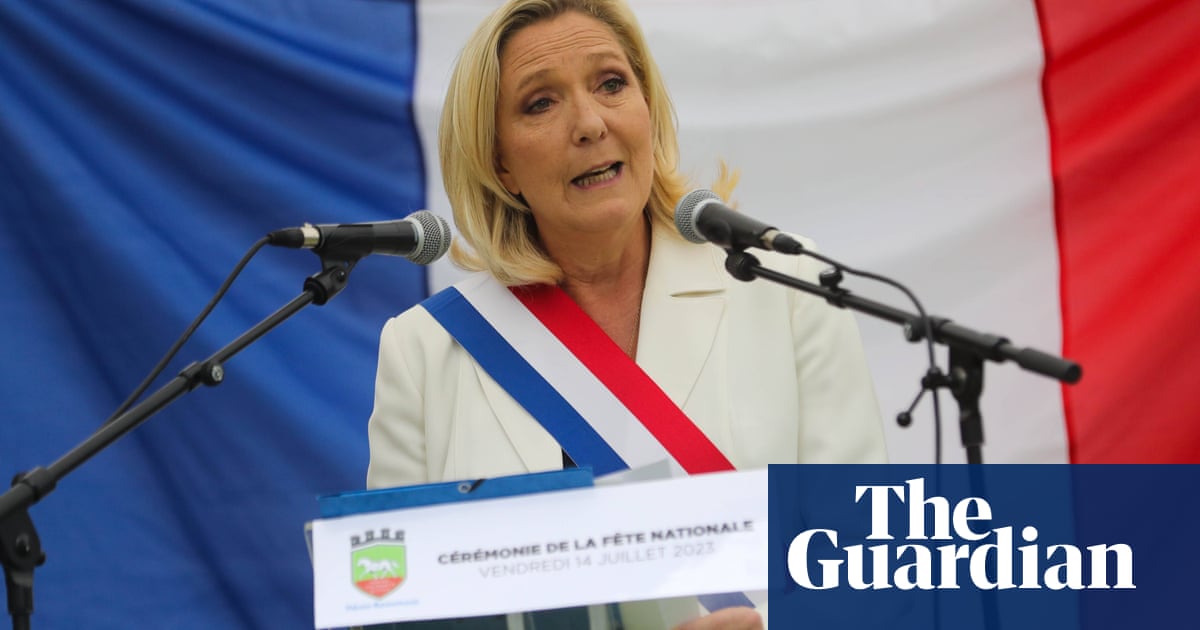
The French far-right leader Marine Le Pen could win the next presidential election in 2027, the interior minister, Gérald Darmanin, has said, as he positions himself as a potential candidate for the centre-right.
“The fact of the matter is that in five years’ time, a victory for Madame Le Pen is quite probable,” Darmanin told La Voix du Nord, in an interview published on Friday.
Darmanin, 40, who is in charge of French policing, has faced several crises in recent months, including urban unrest after the police shooting of a teenager of Algerian origin at a traffic stop outside Paris in June, and violent gun crime in drug dealer turf wars in Marseille and Nîmes.
This Sunday, he is to hold a large political gathering over sausage, chips and beer in his northern base of Tourcoing, styled as a brainstorming exercise on ways to stop Le Pen and win back working-class and middle-class workers. Political observers in Paris see it as a step towards a possible presidential bid.
Le Pen, who was beaten by Emmanuel Macron in last year’s presidential election, has presided over a historic success for her far-right National Rally party in parliament, where it is the biggest single opposition party. She is expected to run for the fourth time for president in 2027, when the French constitution bars Macron from running for a third term.
Darmanin told La Voix du Nord: “If we let a large part of the working class and middle class go over to Marine Le Pen, the professional classes will not support us in the second round.” He suggested that societal issues – such as salaries, working life, the cost of living and support for families – were “crucial”. He said: “That is what could get Marine Le Pen elected in 2027, not questions on migration.”
Darmanin’s assertion that the electorate of “professional classes” would not be enough to win the presidency, was a dig at Macron, whose support is seen as coming from a metropolitan demographic that is older and better-off.
Darmanin said he felt working-class people wanted “a return of authority in schools and on the streets, more firmness in the justice system and the police. People also want to be able to live from the fruit of their labour”.
Darmanin is attempting to style himself as the favoured candidate of working families. From the north of France, his father was a bar-owner and his mother, who was of Algerian origin, worked as a concierge and cleaner.
Philippe Ballard, an MP for Le Pen’s party, told French radio Europe 1 that Darmanin was a key member of Macron’s elite and only Le Pen’s party understood people’s “everyday lives”. Olivier Faure, of the Socialist party, said Darmanin was part of a government that had “favoured the super-rich over everyone else”.
Darmanin is yet to say if he will run in the 2027 election. He is close to Macron, after quitting the rightwing Les Républicains, where his mentor was Nicolas Sarkozy, to join Macron in 2017.
As a budget minister, Darmanin helped implement Macron’s main tax changes. Feminists protested in the street at his appointment as interior minister in 2020, after a woman had accused him of rape, sexual harassment and abuse of trust in a case that dated back to 2009. Darmanin denied all charges. A Paris court of appeal this year upheld judges’ dismissal of the case.
As interior minister, he has regularly been criticised by the left for his hardline stance on security. In 2013, he was against the legalisation of same-sex marriage in France, but said this year: “I was wrong.”












